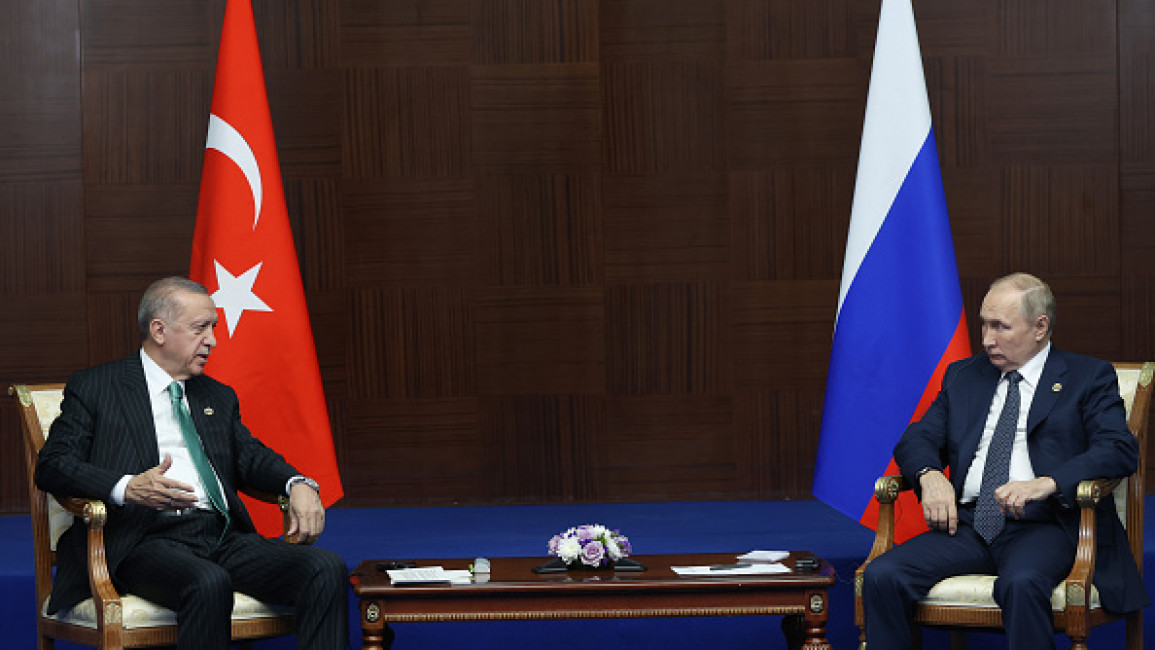Turkey president Erdogan says Putin agreed to Black Sea grain deal extension
Russian President Vladimir Putin has agreed to extend the Black Sea grain deal which expires next week, Turkish President Recep Tayyip Erdogan said on Friday.
Erdogan told reporters he had spoken with his Russian counterpart about the crucial deal allowing for the export of Ukrainian grain to ease a global food crisis.
The deal, signed five months after the Russian invasion of Ukraine, is set to expire on Monday, and Putin has repeatedly threatened not to renew it because of obstacles to Russia's own exports.
"We are preparing to welcome Putin in August and we agree on the extension of the Black Sea grain corridor," Erdogan told reporters.
UN Secretary General Antonio Guterres this week sent Putin a letter about the extension of the deal. He supports removing hurdles to Russia exporting its fertilisers – another element Moscow has complained is not being respected.
Erdogan said he hopes "that with this letter we will ensure the extension of the grain corridor with our joint efforts and those of Russia."
Putin on Thursday warned that "not one" of Moscow's conditions for the deal to function had been met.
"I want to emphasise that nothing was done, nothing at all. It's all one-sided," Putin said in a televised interview, adding: "We will think about what to do, we have a few more days."
The deal, which Turkish President Recep Tayyip Erdogan helped broker, has allowed Ukraine to ship more than 32 million tonnes of grain past Russian warships in the Black Sea.
Much of the grain has gone to feed people in developing countries in Africa, the Middle East and elsewhere. If the exports were again blocked, food prices could spiral even higher than they are now.



